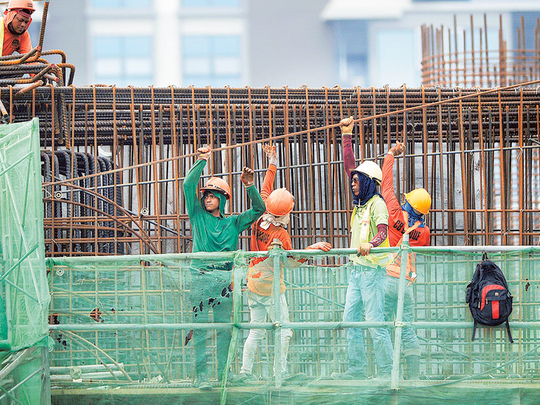
Manila: Philippine economic growth quickened in the second quarter, the government said Thursday, placing the country in a better position to weather the global fallout from China’s economic woes.
Officials credited the growth to “prudent fiscal management” and policies pursued by President Benigno Aquino, which has helped transform the country into one of the fastest-growing economies in the region.
Boosted by higher government spending, the April to June gross domestic product (GDP) grew 5.6 per cent, outpacing the 5.0-per cent growth in the previous quarter, which was the lowest in three years, Economic Planning Secretary Arsenio Balisacan said.
Despite the rebound, Balisacan said the economy was likely to grow from 6.0 to 6.5 per cent for the full year, below the government’s 7.0 to 8.0 per cent target.
Second quarter growth was also slower than 6.7 per cent during the same period last year, data showed.
Balisacan and other officials stressed that the growth showed the country could weather the global financial turmoil.
“Our economic fundamentals are still strong. We have to make sure we are mindful of the challenges we are facing,” Balisacan told reporters.
“The quality and the rate of growth of the Philippine economy gives some assurance that with greater vigilance ... we can withstand the volatile markets overseas,” he added.
President Aquino’s spokesman Edwin Lacierda said the growth was due to political stability “along with prudent fiscal management”.
“This stability has helped the Philippines weather external shocks, proving once again that good governance is good economics,” he added.
Finance Secretary Cesar Purisima said in a statement that “robust domestic demand”, along with the remittances from 10 million Filipinos working abroad and the booming business process outsourcing industry, were all lifting growth.
With the second quarter numbers in, Barclays said it cut its 2015 growth forecast for the Philippines to 5.5 per cent, but said Balisacan’s expectation of 6.0 to 6.5 per cent growth was “realistic”.
“Overall, despite the cut in our growth forecast, we expect the Philippines to continue to outperform the other ASEAN economies, with the country set to be the fastest growing economy among the major ASEAN economies for a third consecutive year in 2015,” Barclays regional economist Rahul Bajoria said in an email.
But he warned that government spending still had not risen fast enough and exports had been weak, weighing down growth.
World markets from the United States to Europe and Asia tumbled this week amid concerns that growth in China, the world’s second largest economy, was slowing more than expected.
The Philippine benchmark index fell 6.7 per cent earlier this week, wiping out this year’s record gains, but the market has since stabilised.
Philippine shares were up 147.33 points or 2.15 per cent to 7,015.25 at noon on Thursday after the GDP figures were announced.
The peso closed at 46.72 against the dollar on Wednesday, but Balisacan said the depreciation was not sharp enough to affect the economy and could increase the value of remittances from overseas workers.












